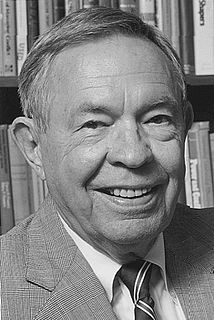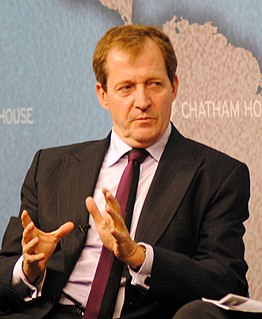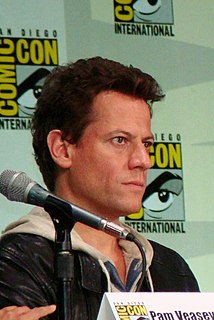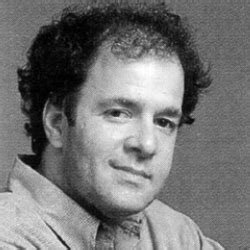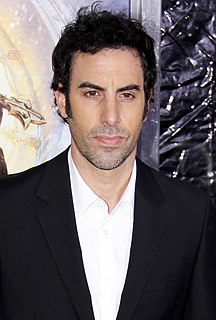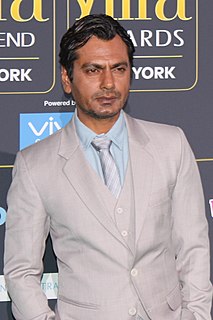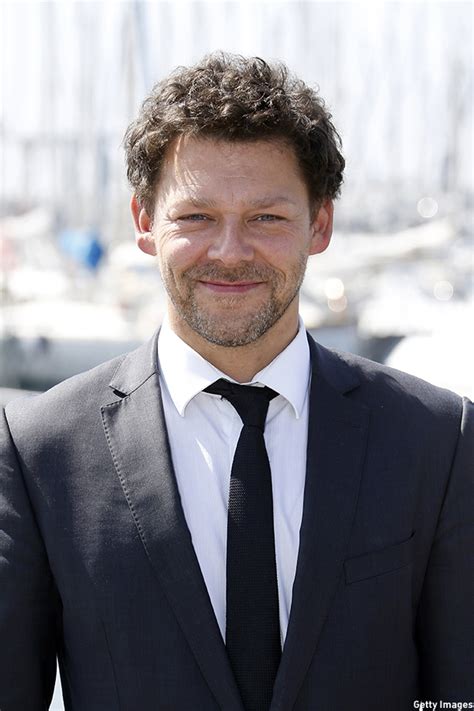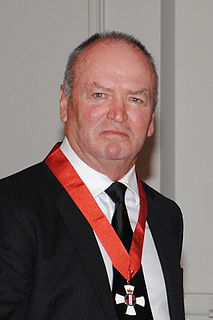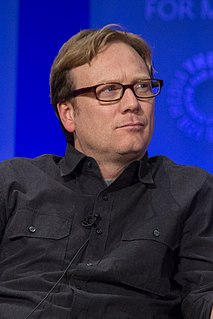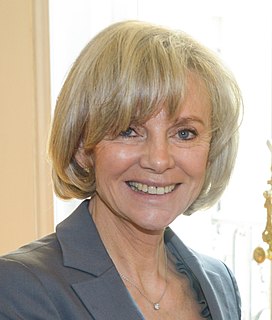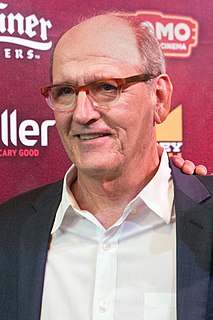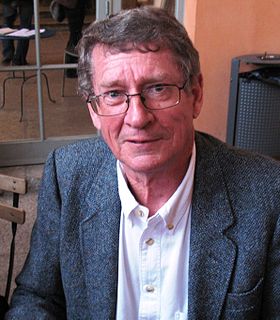Top 1200 Character And Reputation Quotes & Sayings - Page 3
Explore popular Character And Reputation quotes.
Last updated on April 15, 2025.
True honour is an attachment to honest and beneficent principles, and a good reputation; and prompts a man to do good to others, and indeed to all men, at his own cost, pains, or peril. False honour is a pretence to this character, but does things that destroy it: And the abuse of honour is called honour, by those who from that good word borrow credit to act basely, rashly, or foolishly.
A woman can be demure, lady-like and the most prim and proper character, and still have a toughness and resiliency as apparent as a superhero-type female character or a warrior or soldier type. It's all about the story, the character, and the course of events in that piece of work and how that character is presented.
We acquire the love of people who, being in our proximity, are presumed to know us; and we receive reputation or celebrity, from such as are not personally acquainted with us. Merit secures to us the regard of our honest neighbors, and good fortune that of the public. Esteem is the harvest of a whole life spent in usefulness; but reputation is often bestowed upon a chance action, and depends most on success.
The freedom of the press is a valuable privilege, but the abuse of it in this country is a frightful evil. The licentiousness of the press is a deep stain upon the character of the country; and in addition to the evil of calumniating good men and giving a wrong direction to public measures, it corrupts the people by rendering them insensible to the value of truth and of reputation.
I feel like thanking Paul Dacre every time, because the reason they ask me is because they think I've come through the other end with a pretty good reputation. Loads of people get a bad press but have a good reputation. [David] Beckham - think what he went through. [Bill] Clinton, likewise. You just have to be true to yourself.
The publicity I have been getting, a good deal of which is untrue, and the rest of it ill considered, has done me more harm than good. The only way you get on in this profession is to have the reputation of doing what you are told as thoroughly as possible. So far I have been able to accomplish that, and I believe I have gotten quite a reputation from not kicking at peculiar assignments.
And we shall most likely be defeated, and you will most likely be victors in the contest, if you learn so to order your lives as not to abuse or waste the reputation of your ancestors, knowing that to a man who has any self-respect, nothing is more dishonourable than to be honoured, not for his own sake, but on account of the reputation of his ancestors.
It's really an organic sort of process. You start off with the character on the page. You fall in love with that character and you have to represent that character well and I think it's just an evolution there. Using the accent and speaking the lines with the accent in fact opens the door to who the character really is.
Within a single scene, it seems to be unwise to have access to the inner reflections of more than one character. The reader generally needs a single character as the means of perception, as the character to whom the events are happening, as the character with whom he is to empathize in order to have the events of the writing happen to him.
The first thing that happens is the cleansing of the former character. I don't think a lot of actors talk about it, but there is usually a process where you essentially purge yourself of the character played prior to the movie. Then you want to think about what the character represents, and you write down all of the elements about this character and then take the time to find some synchronicity and start breathing the character.
I once read in a Bible commentary that the word "Christian" means "little Christs." What an honor to share Christ's name! We can be bold to call ourselves Christians and bear the stamp of his character and reputation. When people find out the you are a Christian, they should already have an idea of who you are and what you are like simply because you bear such a precious name.
One of the great myths in America is that sports build character. They can and they should. Indeed, sports may be the perfect venue in which to build character. But sports don't build character unless a coach possesses character and intentionally teaches it. Sports can team with ethics and character and spirituality; virtuous coaching can integrate the body with the heart, the mind, and the soul.
I never like to judge the character. I just have to leave my feelings of pity, or fear, about a character - whatever I feel towards the character, I try to leave to one side. It's good to have them, but it doesn't help me. I can't act those things. I just to play the character as truthfully as I can.
When you start digging into things like character, though, the notion that people have high character or low character is very strong. What's crazy is that my thinking is not a new insight. The very first large-scale study of character, still one of the largest ever, was done in the early 1900s by Hugh Hartshorne, an ordained minister and a scientist.
A man's reputation is not in his own keeping, but lies at the mercy of the profligacy of others. Calumny requires no proof. The throwing out [of] malicious imputations against any character leaves a stain, which no after-refutation can wipe out. To create an unfavorable impression, it is not necessary that certain things should be true, but that they have been said. The imagination is of so delicate a texture that even words wound it.
One is told that you're either a hot writer, or you're finished and you're over. But of course, the more you hang around and the more you become aware not only of what "reputation" is for other writers, but also what your own reputation is, you become aware that it's much more complicated than the conventional media would have you believe.
A vice sanctioned by the general opinion is merely a vice. The evil terminates in itself. A vice condemned by the general opinion produces a pernicious effect on the whole character. The former is a local malady; the latter, constitutional taint. When the reputation of the offender is lost, he too often flings the remainder of his virtue after it in despair.
With this new stupid Supreme Court ruling, secret money can come in on an unlimited level from corporations. Nobody knows where it comes from. That distorts the political situation in our country tremendously. Most of that money is spent on negative advertising that is tearing down the character and reputation of your opponent, and it works, although most American people say, "We don't like negative advertising," it works.
Viewers have a way of remembering the celebrity while forgetting the product. I did not know this when I paid Eleanor Roosevelt $35,000 to make a commercial for margarine. She reported that her mail was equally divided. "One half was sad because I had damaged my reputation. The other half was happy because I had damaged my reputation." Not one of my proudest memories.
Even those who, like me, believe that Roe v. Wade and the decisions elaborating on reproductive rights were constitutionally correct must recognize that, for many on the right, the sudden and relatively sloppily reasoned character of the abortion rulings... did real damage to the Court's reputation as a relatively neutral arbiter of legal disputes.
When I'm writing, I try to have the mask of my character on as I'm walking through the world. When I'm not at my desk, the rest of the time, I try to stay in that character and see the world the way that character would It's almost like method acting in a way — keeping the character close the way the actor keeps a script close and always tries to be in character.
